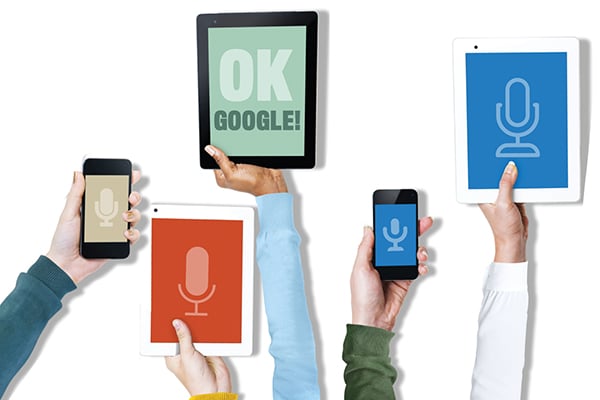 As a staff research scientist with Google, Carolina Parada, PHD ’11, is changing the way people interact with their devices.
As a staff research scientist with Google, Carolina Parada, PHD ’11, is changing the way people interact with their devices.
Parada’s speech recognition team recently used hot word detection, also known as keyword spotting, to create an algorithm that detects sound. The result? The popular “OK Google,” a catchphrase of sorts that enables users to start speaking to their phones, tablets, and, in the case of Android Wear, even their smart watches.
“The algorithm behind it is just an acoustic model that detects words and simple sounds like ‘ca’ and ‘da,’” says Parada. Whiting School PhD candidate Guoguo Chen, MS ’12, helped build the algorithm, thanks to an internship program that the school has with Google. Through the program, Ehsan Variani, MS ’11, another Whiting School PhD candidate, has worked on a team parallel to Parada’s that focuses on speaker verification, or helping devices understand when their primary user is talking. Parada, who graduated from the Whiting School a year earlier than her husband, Jorge Bernate, PhD ’12, a chemical engineer, was once an intern at Google as well. Parada’s graduate work at Johns Hopkins was centered in the Center for Language and Speech Processing.
Although “OK Google” initially was available only in English, the program now is available in about 40 languages. Some features, such as the acoustic model, are language-specific, but the basic system is a general algorithm that applies to any language. “You don’t need to know a language in order to build a system for that language,” says Parada




